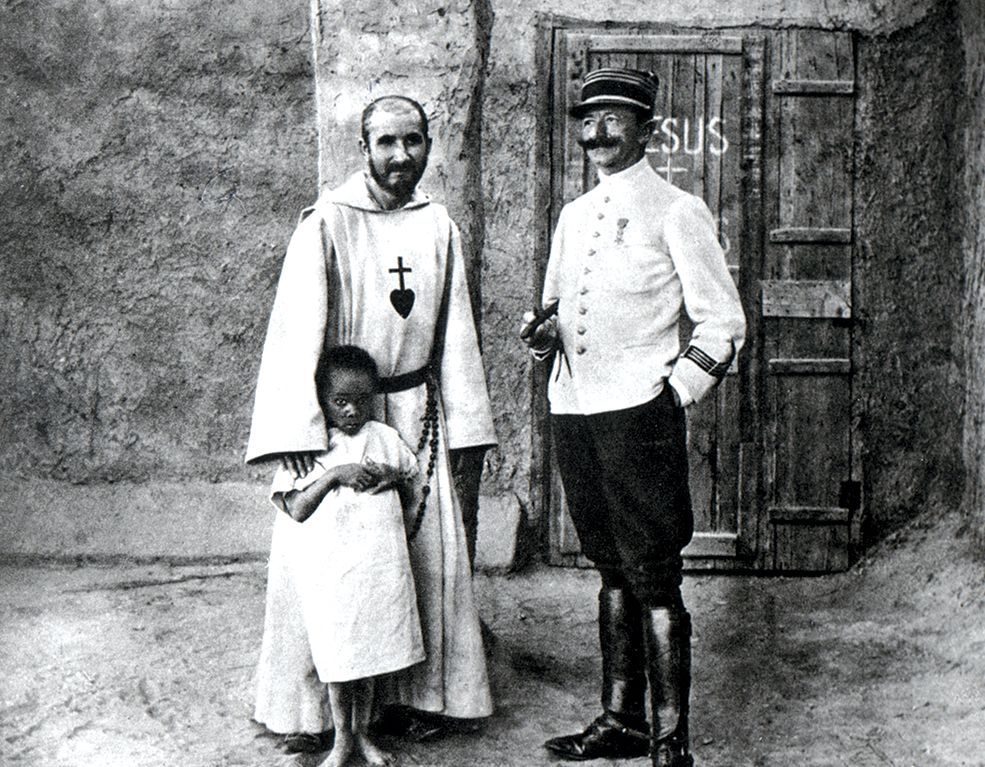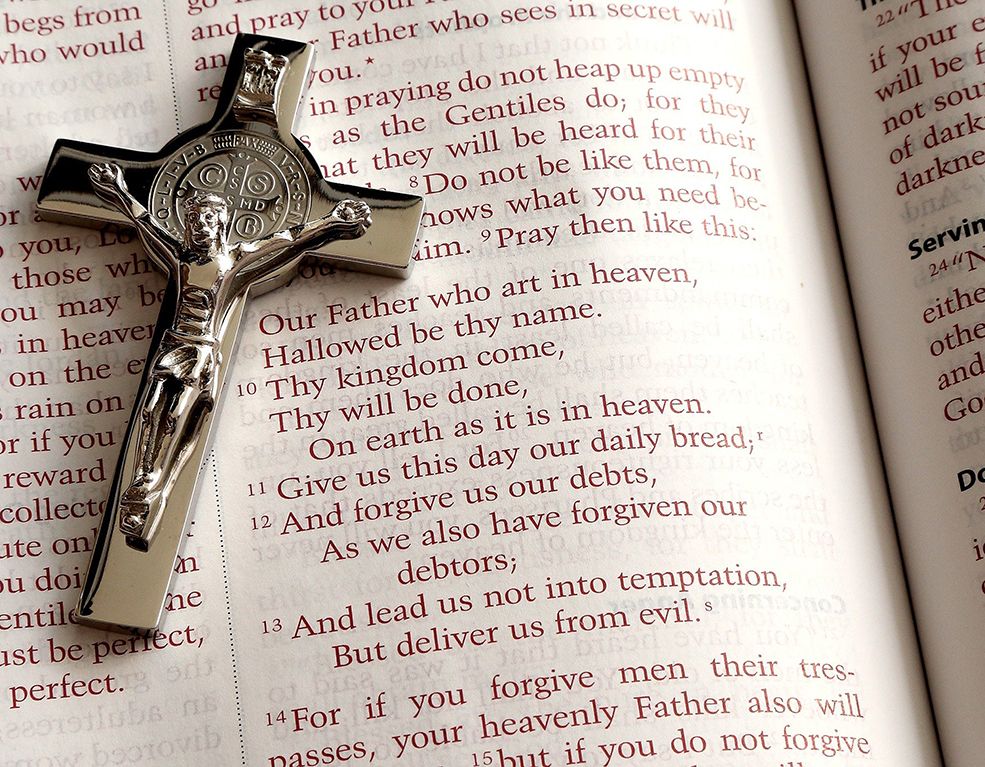In the Old Testament, many words and expressions signify joy or a lack of it. People are called to shout for joy, clap their hands, or dance. God is described as being satisfied with His work. Actually, happiness is seen as a characteristic of divine life.
God is happy to bless His people. “God makes His face shine upon you, and be gracious to you; God lifts His countenance upon you, and gives you peace” (Numbers 6: 25ff). He is also pleased in the lives of people: “God will again delight in you and make you prosperous, just as He delighted in your fathers” (Deuteronomy 30: 9); “I know, O Lord, that you search the heart, and take pleasure in uprightness” (1 Chronicles 29: 17); “God takes pleasure in those who fear Him, in those who hope in His steadfast love” (Psalms 147: 11).
The theme of happiness often emerges in Wisdom literature also. In Proverbs 8, Wisdom weaves her praise on the canvas of the Word. In verses 30–34, Wisdom claims to have been beside God when He created the universe. “I was his delight every day… and my joy was among the sons of man… happy are those who keep my ways!”
The theme of happiness is recalled several times in a few lines. This strongly suggests that creation was a moment of great joy for all involved. God is happy, but also the human beings are called to be happy.
Delight In Creation
Elsewhere, it is said that God created the sea so that the leviathan could enjoy himself there (Ps 104: 25–26). “Delight” and “rejoice” are used here as synonyms, suggesting that God took pleasure in creating the universe. This is true for all involved: God, Wisdom–personified in the image of a woman—and humanity. God is seen here as a dynamic and interactive character. It is Wisdom that speaks to the people and invites them to listen to the teaching and keep it, especially to walk in the ways of the Lord. This would make them happy.
One has the distinct feeling that the delight spoken about is not simply a feeling of amusement, of relaxation–it is the outcome of God’s action. In Proverbs–but see also Ecclesiastes 5–action and happiness are linked directly; it is not a question of a playful attitude. Joy is the result of rightful activity, and these two dimensions must remain related to each other. Thus, joy is not a distraction from life.
Happiness is an integral component of life, and a life without joy lacks an important component. Pleasure and playfulness are built into the very fabric of life, including God’s life. A life without joy is not what God intended it to be.
Stressing God’s happiness would be a way to change our understanding of God and imply the importance of joy and wellbeing in our own lives as well. This is not a far-fetched idea. It is the Word of God that invites us to rediscover God’s happiness, how God enjoys the universe and all of its creatures–and this realization should have an impact on the way we serve God and relate to each other.
The Joy Of Jesus
The issue of happiness is present in Jesus’ life also, even though there is no extensive treatment of Jesus’ joy. In the Gospel of Luke (10: 17ff), we find an interesting remark. The disciples were sent on a mission, and now they return to Jesus.
Jesus is happy and exclaims: “At that same hour, Jesus rejoices in the Holy Spirit and says, ‘I praise you, Father, Lord of heaven and earth, for thou hast hidden these things from the wise and the learned and revealed them to little children. Yes, Father, because this is what you willed in your goodness.’”
This is the only time, in the whole Gospel when the joy of Jesus is spoken about. Finally, a group of disciples has been able to free people from the false ideologies that imprison them. The fullness of joy of the seventy-two corresponds with the exultation of joy on the part of Jesus, in the Holy Spirit, who addresses His praise to the Father “Lord of heaven and earth.”
Jesus spoke of the true happiness of the disciple. In the Sermon on the Mount (Matthew 5–7) Jesus addresses this theme with the Beatitudes. True happiness is achieved by choosing to follow God’s plan. The words of Jesus mirror many similar expressions found in the Old Testament: “Happy are…”
The Greek word used here by the evangelist (makarios) translates to the Hebrew ashrei. This word means to be on the right path, to move in the right direction. It was used to describe the journey towards Jerusalem; so, one is happy to be doing the right thing, to be moving in the right direction. This happiness is not just a feeling of contentment; it is the realization of following God’s will.
Of particular importance are the words “blessed are the peacemakers.” Peace, shalom, in the Bible, does not denote the absence of conflict. That would be a reductive view of peace. Peace is all that contributes to a healthy, harmonious, safe, full, happy life.
Peace is so identified with general wellbeing, something that we often have to fight for. Peacemakers are those who reject power, idolatry, wealth, as these are the source of injustice and create a lack of wellbeing. Peacemakers also commit themselves to transform attitudes and reality, they identify the lack of rights and fight for their restoration.
Paul Rejoices
The theme of joy is further developed by St. Paul. Writing to the Philippians, he says: “I thank God for you all … making my prayer with joy, because of your partnership in the Gospel from the first day until now” (Philippians 1: 3–5).
Paul’s joy was rooted in the Philippians’ partnership in the Gospel. The joy they shared was not simply mutual affection, it was a mutual undertaking: the mission to proclaim the Gospel to all. In fact, he later underlines how “I will rejoice, for I know that through your prayers and the help of the Spirit of Jesus Christ this will turn out for my deliverance” (1: 18).
He adds: “Rejoice in the Lord always; again, I will say, rejoice” (4: 4). Paul understood that once a community is firmly built on the rock that is the Gospel, then the relationship with God turns life into joy. Paul’s life was not easy. Yet, he was joyful and he described himself as “sorrowful, yet always rejoicing” (2 Corinthians 6: 10).
God Is Love
Yes, God is Love (1 John 4: 8), but we can also say that God is Joy. God is a loving Father; He does not wish us to be gloomy and have a life full of trials. God certainly is not pleased when He sees the oppression of His people (Exodus 3: 7–8).
He wants people to live in freedom. The whole of the journey of salvation is geared to a transformation of society so that it may become the Kingdom of God. This is not a kingdom of the afterlife. It is here and now; it is the place–and the people–where God exercises His sovereign governance.
God created the universe and placed it on a path of growth. “The whole universe’s groans will be set free from its bondage to decay and brought into the glorious freedom of the children of God. We know that the whole creation has been groaning together in the pains of childbirth until the present time. Not only that but we ourselves, who have the first fruits of the Spirit, groan inwardly as we wait eagerly for our adoption as sons, the redemption of our bodies” (Romans 8: 21–23).
Joy goes hand in hand with building relationships– the relationship of the human being with other people, with creation, and with God. This is clearly seen in the creation story, where the appearance of sin eats into man’s relationship with God like a woodworm, destabilizing the fabric of life.
Thus, we are called to build our happiness in re-establishing a good relationship with creation–the ecological sphere of life, a relationship with people, with our neighbor, and with God, our creator, and our example of a life of happiness.




























